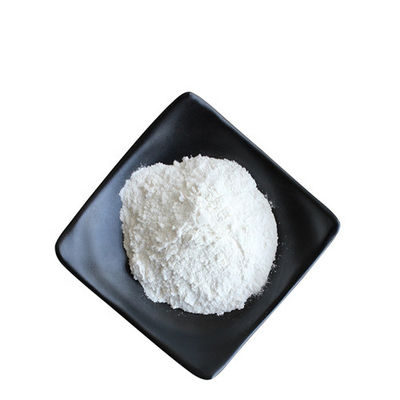Vitamin B1 Thiamine Mononitrate CAS 532-43-4 Thiamine Mononitrate Vitamin Additives
Description:
Thiamine Mononitrate is a vitamin, also called vitamin B1. Vitamin B1 is found in many foods including yeast, cereal grains, beans, nuts, and meat. It is often used in combination with other B vitamins, and found in many vitamin B complex products.
Vitamin B1 is also called thiamine or fight neuritis vitamins or resistance beriberi, white crystal, the presence of oxidants easily by oxidative dehydrogenation thiamine, which appear blue fluorescence under uv irradiation.By the pyrimidine ring and based on the combination of the methyl thiazole ring a B vitamin.
Details:
CAS No.: 532-43-4
Other Names: Thiamine Mononitrate
MF: C12H17ClN4OS
EINECS No.: 200-425-3
Place of Origin: China
Type: Vitamins, Amino Acids and Coenzymes
Grade Standard: Feed Grade, Food Grade, Medicine Grade
Model Number: Vitamin B1
Purity: 98.0%
Product Name: Vitamin V1 Mono
Appearance: White Crystalline Powder
Shelf life: 3 Years
Certificate: COA MSDS
Test Method: HPLC
Delivery time: Within10 days
Sample: Available
Storage: Cool Dry Place
Specification:
| Test items |
Specifications(BP/USP) |
| Apperance |
White or almost white crystals or
crystalline powder
|
| Assay % |
98.0~101.0% |
| PH |
6.8~7.5 |
| Chloride% |
≤0.06% |
| Total Impurity% |
≤1.5% |
| Loss on Drying% |
≤1.0% |
| Sulphated Ash% |
≤1.0% |
| Lead/ppm |
≤2ppm |


Packaging & Delivery:
Packaging Details: 1KG/BAG; 5-10KG/CARTON; 25KG/DRUM
Delivery Time: Shipped in 10-15 days after receive payment
Function:
* Metabolic disorders. Taking thiamine by mouth helps correct metabolic disorders associated with genetic diseases, including Leigh's disease, maple syrup urine disease, and others.
* Thiamine deficiency. Taking thiamine by mouth helps prevent and treat thiamine deficiency.
* Brain disorder due to thiamine deficiency (Wernicke-Korsakoff syndrome). Thiamine helps decrease the risk and symptoms of a specific brain disorder called Wernicke-Korsakoff syndrome (WKS). This brain disorder is related to low levels of thiamine (thiamine deficiency)
* Athletic performance. Some research suggests that taking thiamine together with pantethine and pantothenic acid (vitamin B5) does not improve muscle strength or endurance in athletes.

 Your message must be between 20-3,000 characters!
Your message must be between 20-3,000 characters! Please check your E-mail!
Please check your E-mail!  Your message must be between 20-3,000 characters!
Your message must be between 20-3,000 characters! Please check your E-mail!
Please check your E-mail! 



